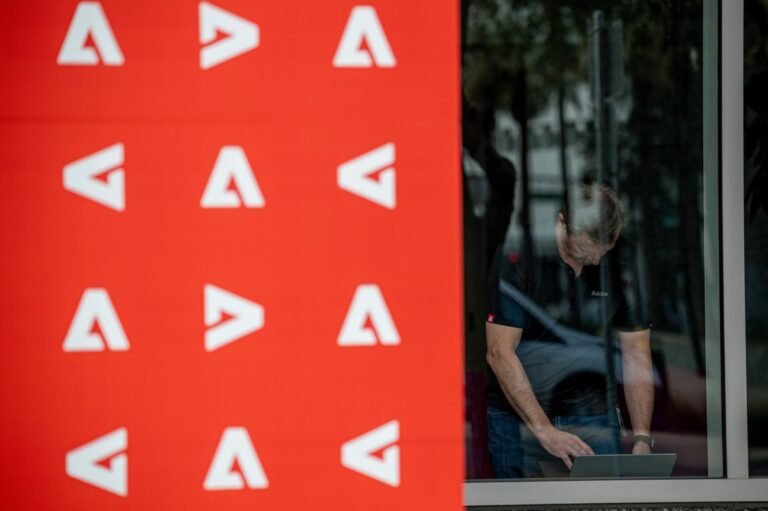
Brands want to use generative AI to personalize their marketing efforts — but they are also deathly afraid of AI going off message and ruining their brand.
At its annual Summit conference in Las Vegas, Adobe today announced GenStudio, a new application that helps brands create content and measure its performance, with generative AI — and the promise of brand safety — at its center.
Adobe wants GenStudio, which it first previewed last September, to be an end-to-end solution to help marketers tailor their content to different channels and audience segments.
That, of course, is where generative AI comes in, since it can speed up content creation dramatically.
The tools also continuously checks that anything a user creates in GenStudio is within a brand’s guidelines.

Controversial crypto biometrics venture Worldcoin has been almost entirely booted out of Europe after being hit with another temporary ban — this time in Portugal.
The order from the country’s data protection authority comes hard on the heels of the same type of three-month stop-processing order from Spain’s DPA earlier this month.
Portugal’s data protection authority said it issued the three-month ban on Worldcoin’s local ops Tuesday after receiving complaints Worldcoin had scanned children’s eyeballs.
By contrast, EU data protection law gives people in the region a suite of rights over their personal data, including the ability to have data about them corrected, amended or deleted.
As Tools for Humanity’s lead DPA, under the one-stop-shop (OSS) mechanism in bloc’s General Data Protection Regulation (GDPR), it is responsible for investigating privacy and data protection complaints about the company.

AI is a data problem.
Now Cyera is raising up to $300M on a $1.5B valuation to secure itA cybersecurity startup called Cyera is betting that the next big challenge in enterprise data protection will be AI, and it’s raising a big round of funding as demand picks up for it.
Previous to this, Cyera — pronounced “Sierra” and headquartered in San Mateo and with roots in Israel — had raised a total of $160 million with its current $500 million valuation dating from last year.
Cyera, Coatue and Sequoia declined comment.
A source said that AI right now is a “huge driver” for business at Cyera.

Nvidia chips give graphics-hungry gamers the tools they need to play games in higher resolution, with higher quality and higher frame rates.
Anyone who came to the keynote expecting him to pull a Tim Cook, with a slick, audience-focused keynote, was bound to be disappointed.
The company also introduced Nvidia NIM, a software platform aimed at simplifying the deployment of AI models.
“Anything you can digitize: So long as there is some structure where we can apply some patterns, means we can learn the patterns,” Huang said.
And here we are, in the generative AI revolution.”Catch up on Nvidia’s GTC 2024:Update: This post was updated to include new information and a video of the keynote.

Nvidia chips give graphics-hungry gamers the tools they needed to play games in higher resolution, with higher quality and higher frame rates.
Anyone who had come to the keynote expecting him to pull a Tim Cook, with a slick, audience-focused keynote, was bound to be disappointed.
The company also introduced Nvidia NIM, a software platform aimed at simplifying the deployment of AI models.
NIM leverages Nvidia’s hardware as a foundation and aims to accelerate companies’ AI initiatives by providing an ecosystem of AI-ready containers.
“Anything you can digitize: So long as there is some structure where we can apply some patterns, means we can learn the patterns,” Huang said.

Zscaler, a cloud security company with headquarters in San Jose, California, has acquired cybersecurity startup Avalor 26 months after its founding, reportedly for $310 million in cash and equity.
But what sets Avalor apart is the ability to handle data from virtually any source in any format, and its unique set of vulnerability risk management and prioritization tools.
Prior to the Zscaler acquisition, Avalor managed to secure $30 million from investors including TCV, Salesforce Ventures, Jibe Ventures and Cyberstarts.
And Raz sees Zscaler taking the business — and its ~80-person team spread across the U.S. and Israel — further.
As Crunchbase’s Chris Metinko noted earlier today, Zscaler’s acquisition — along with others in the cybersecurity space — could help spark activity in a slow-to-stagnant cyber M&A market.

A startup called Empathy has built a platform to help navigate this tricky space, and now with some 40 million people using the platform it’s raised $47 million more in funding to grow.
Further services will likely see more AI tools incorporated to guide people through the question of “what next” in the process of organizing things, Gura said.
This round brings the total raised by Empathy to $90 million.
Empathy is not disclosing its valuation, but we understand from sources close to the company that it’s now approaching $400 million.
The rise of more sophisticated AI tooling, has played a role in how Empathy has evolved over the last couple of years.

“So much of the AI conversation has been dominated by … large language models,” Jones said, “but the reality is that no one model can do everything.
Pienso believes that any domain expert, not just an AI engineer, should be able to do just that.”Pienso guides users through the process of annotating or labeling training data for pre-tuned open source or custom AI models.
“Pienso’s flexible, no-code interface allows teams to train models directly using their own company’s data,” Jones said.
“This alleviates the privacy concerns of using … models, and also is more accurate, capturing the nuances of each individual company.”Companies pay Pienso a yearly license based on the number of AI models they deploy.
It’s fostering a future where we’re building smarter AI models for a specific application, by the people who are most familiar with the problems they are trying to solve.”

Four things we learned when US spy chiefs testified to Congress US intelligence leaders gave their most recent — and frank — assessment of global cyber threatsCyberattacks, regional conflict, weapons of mass destruction, terrorism, commercial spyware, AI, misinformation, disinformation, deepfakes and TikTok.
These are just some of the top perceived threats that the United States faces, according to the U.S. government’s intelligence agency’s latest global risk assessment.
Some cybersecurity experts have called on governments to outright ban ransom payments as necessary to stop hackers profiteering from cybercrime.
Given how much data we share from our phone apps (which many don’t give a second thought), U.S. spy agencies are simply buying up vast troves of Americans’ commercially available location data and internet traffic from the data brokers.
In other words, U.S. spy agencies can keep buying data on Americans that is readily available for purchase until Congress puts a stop to the practice — even if the root of the problem is that data brokers shouldn’t have our data to begin with.

After frenzied speculation that a recent photo of Kate Middleton and her children was AI generated, the Duchess of Cambridge herself had to address the controversy.
It’s an appropriate amount of hands — eight hands for four people — but they all look a bit off.
So when official Royal Family accounts published the suspicious-looking photo of Kate and her children, the internet had a field day.
Even British celebrities like Piers Morgan have weighed in, raising the question of why the Royal Family won’t quash the conspiracy theories by just releasing the unedited photo.
It’s a good thing that the public was so skeptical about Middleton’s sketchy photo, since she admitted that it was edited.













